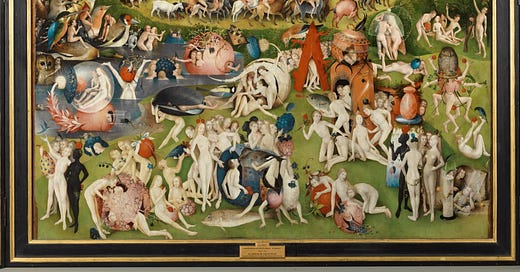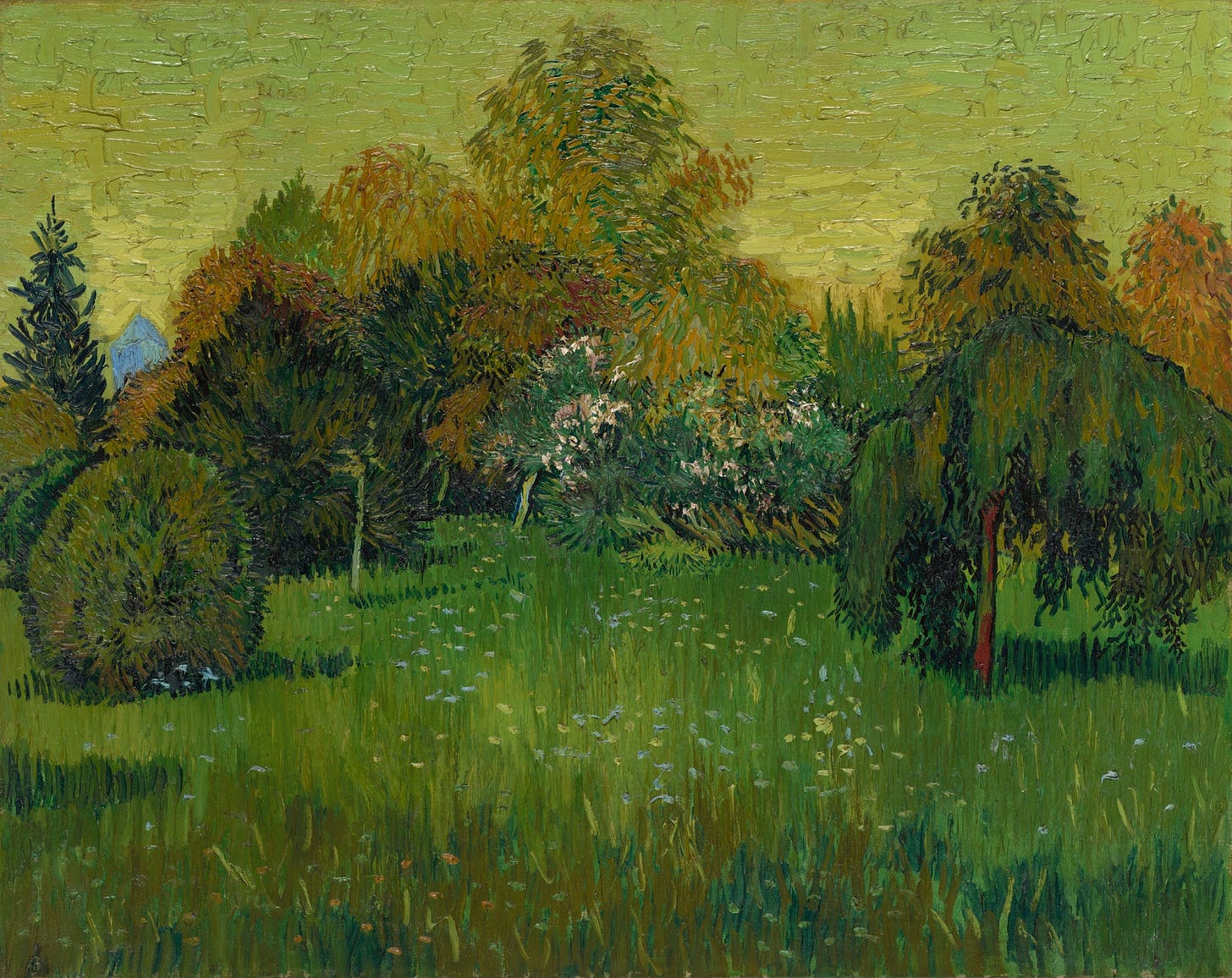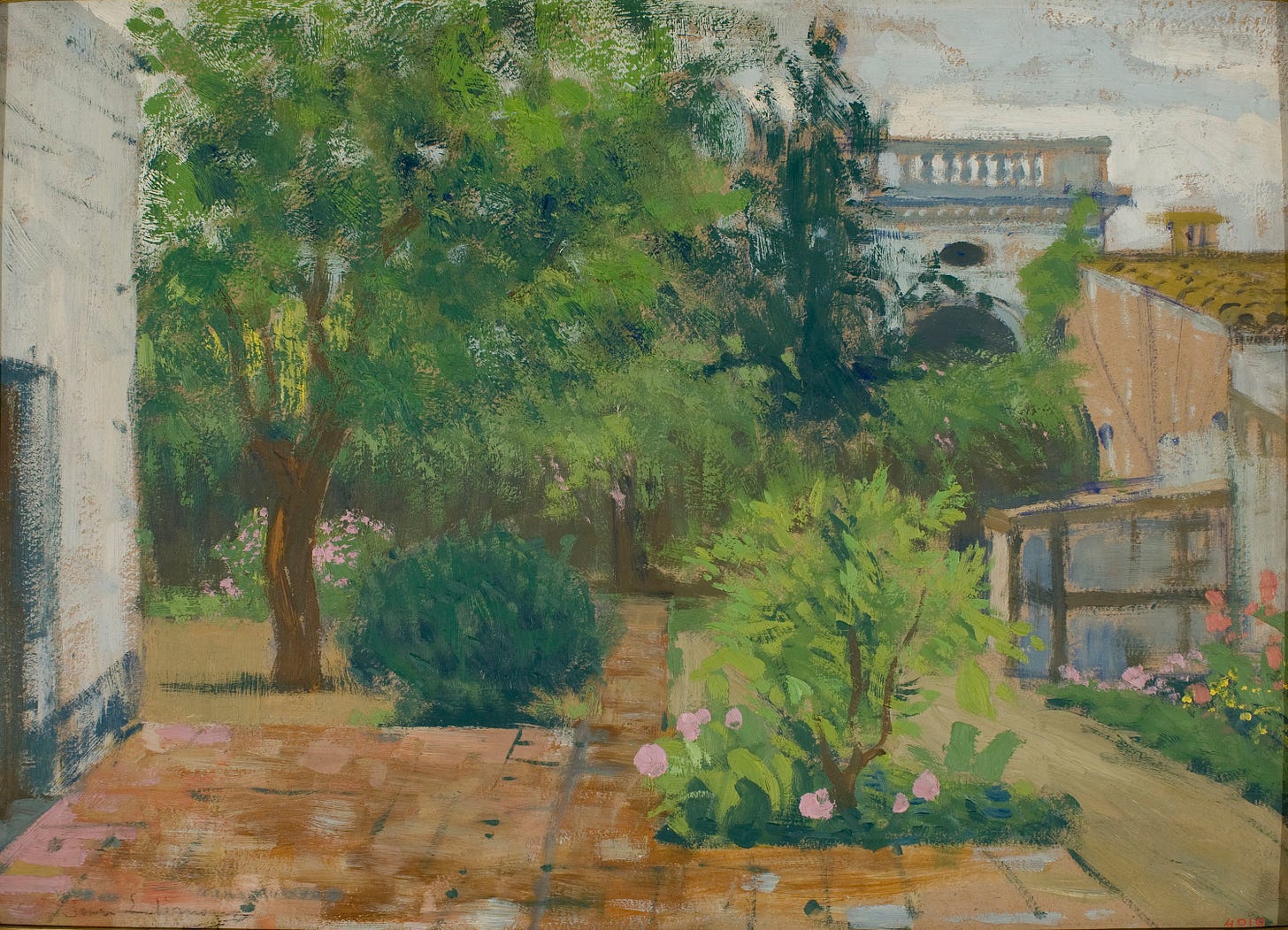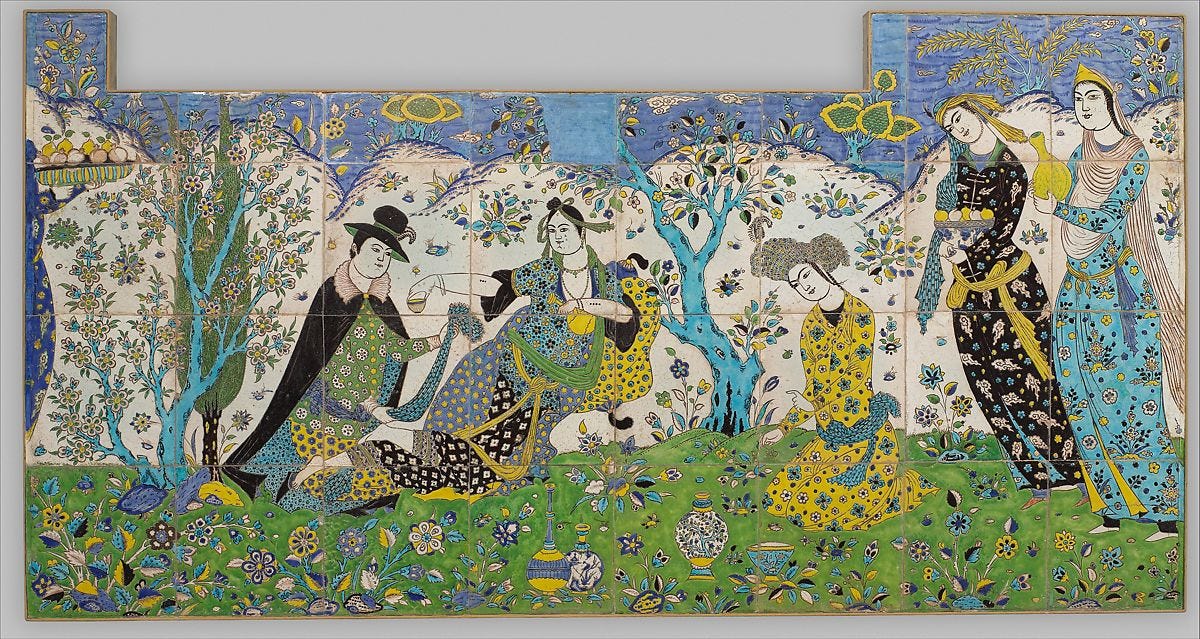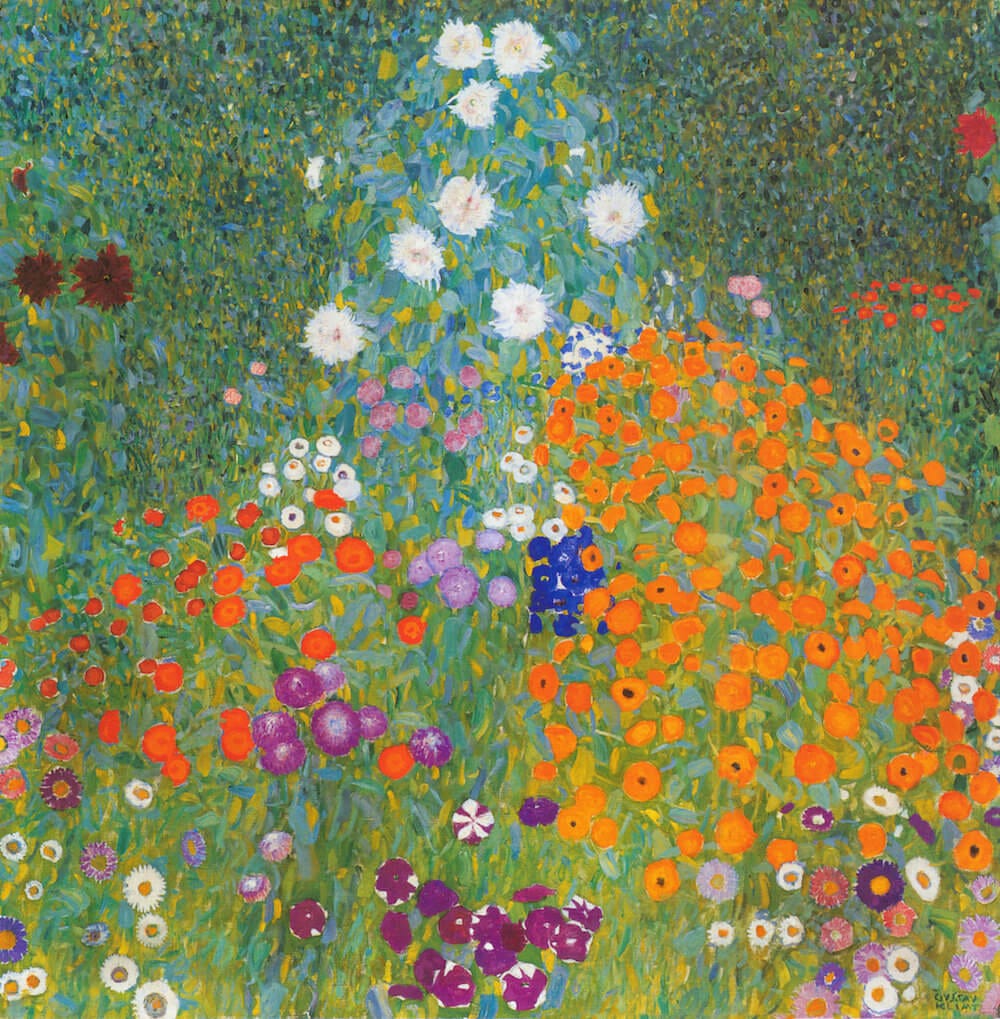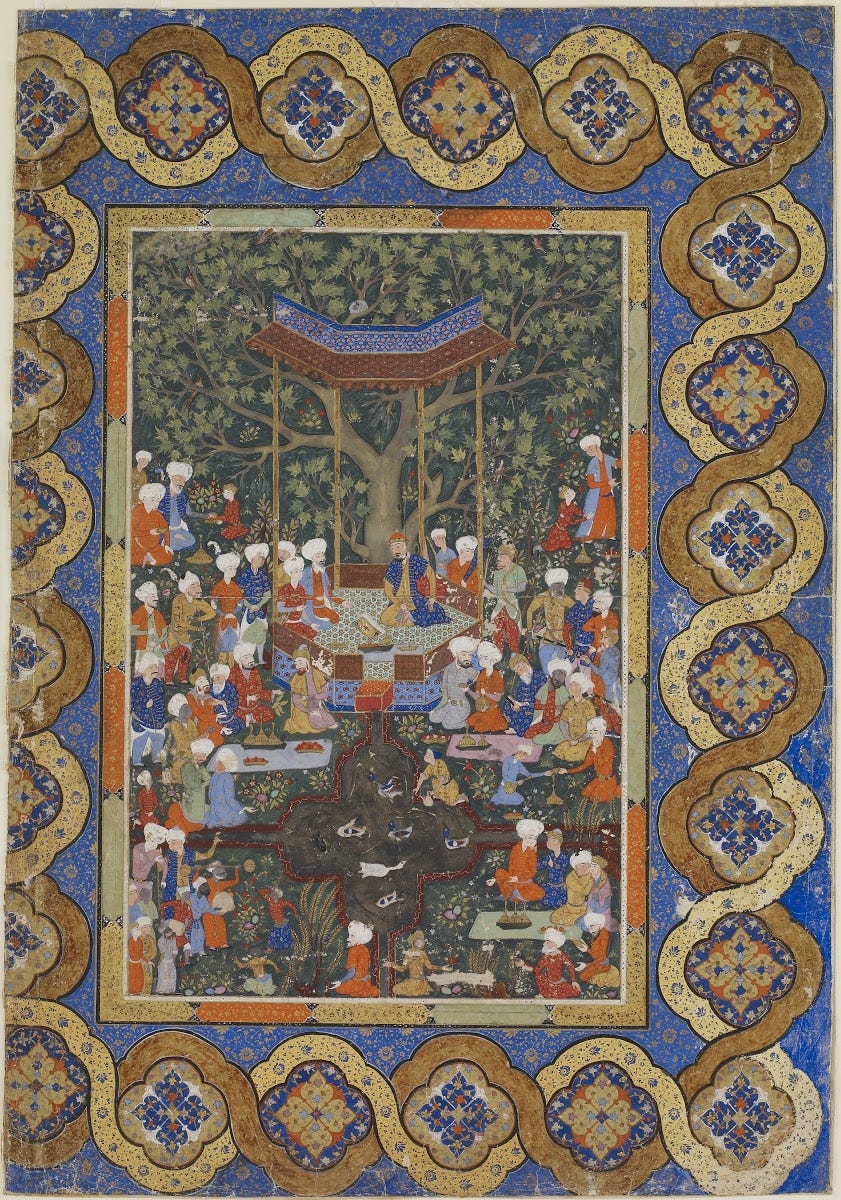#95. GARDEN /JARDÍ
If we understand not one another’s speech, we may make ourselves understood by love / Si no ens entenem per llenguatge, entenam-nos per amor
The bird sang in the garden of the Beloved.
The Lover came, and he said to the bird:
“If we understand not one another’s speech,
we may make ourselves understood by love;
for in thy song I see my Beloved before mine eyes.”
The Book of the Lover and the Beloved by Ramon Llull
GARDEN
A garden represents the inner paradise and conveys the need to take care of our relationship with the unconscious. Effort is required to take care of plants and flowers. And it is not possible to open up and be able to perceive infinity in a flower without effort. A garden represents the order of consciousness surrounded by unconscious, instinctive and omnipotent vegetation. Nature is wild, it can nurture us and kill us. Egyptians drew gardens, with small ponds and lotus flowers, on the walls of the more refined palaces. In Japan, gardens represent cosmic equilibrium. Persian culture goes a step further, not only a cosmology, but gardens are the most precious mystical space. The Persian gardens are surrounded by big walls with a central fountain and four ditches full of fish. Rumi, the great Persian poet, said that the soul feels what it means to be a flower, since the soul recognizes what belongs to the soul. Why are gems precious? And why are flowers beautiful? Because they point towards a reality behind reality, towards the world of primordial forms that we have inside and surround us right now. The Koran tries to communicate such truth with a metaphor: the garden is a paradise and the paradise, a garden. In dreams, a garden represents cultivating the inner world and may indicate that personal identity is willing to accept the existence of a wholeness with a unique imperssonal center. Eva knew that the fruits of the garden were to be enjoyed with devotion. The snake also knew it. And God knew it too. The best way to get a person to do something is to say, "Do not do this, it's forbidden". Enjoy!
“People who deny the existence of dragons are often eaten by dragons. From within.”
Ursula K. Le Guin
Cantava l’aucell en lo verger de l’Amat.
Venc l’amic, qui dix a l’aucell:
“Si no ens entenem per llenguatge,
entenam-nos per amor,
cor en lo teu cant se representa a mos ulls mon Amat.”
Llibre d’amic i amat de Ramon Llull
JARDÍ
El jardí és la imatge del paradís interior i transmet la necessitat de cuidar la relació amb l’inconscient. Cal esforç per cuidar les plantes i les flors. I també cal dedicació per obrir-nos i poder captar l’infinit en una flor. El jardí representa l’ordre de la consciència envoltat de la vegetació inconscient, instintiva i omnipotent. La naturalesa és salvatge, pot nodrir-nos i matar-nos. Els egipcis dibuixaven jardins, amb petits estanys d’aigua i flors de lotus, a les parets dels palaus més refinats. A Japó, els jardins representen l’equilibri còsmic. La cultura persa va un pas més enllà, no només es tracta d’una cosmologia, sinó que els jardins són l’espai místic més preuat. Els jardins perses estan envoltats de parets elevades amb una font central i quatre canals plens de peixos. Rumi, el gran poeta persa, deia que l’ànima sent què implica ser una flor, ja que l’ànima reconeix el que pertany a l’ànima. Perquè les pedres precioses són precioses? I perquè les flors són belles? Doncs perquè apunten cap a la realitat rere la realitat, cap al món de les formes primordials que tenim a dins i ens envolta en tot moment. L’Alcorà ho intenta transmetre amb una metàfora: el jardí és un paradís i el paradís, un jardí. En els somnis, el jardí constitueix una imatge del cultiu del món intern i pot indicar que la identitat personal està disposada a acceptar l’existència d’un Tot amb un centre impersonal únic. Eva sabia que els fruits del jardí estaven a l’arbre per ser gaudits amb devoció. La serp també ho sabia. I Déu també. La millor manera d’aconseguir que una persona faci una determinada cosa és dir-li “No facis això, està prohibit”. A gaudir!
“Les persones que neguen l’existència dels dracs, sovint són devorades per dins pels dracs.”
Ursula K. Le Guin

